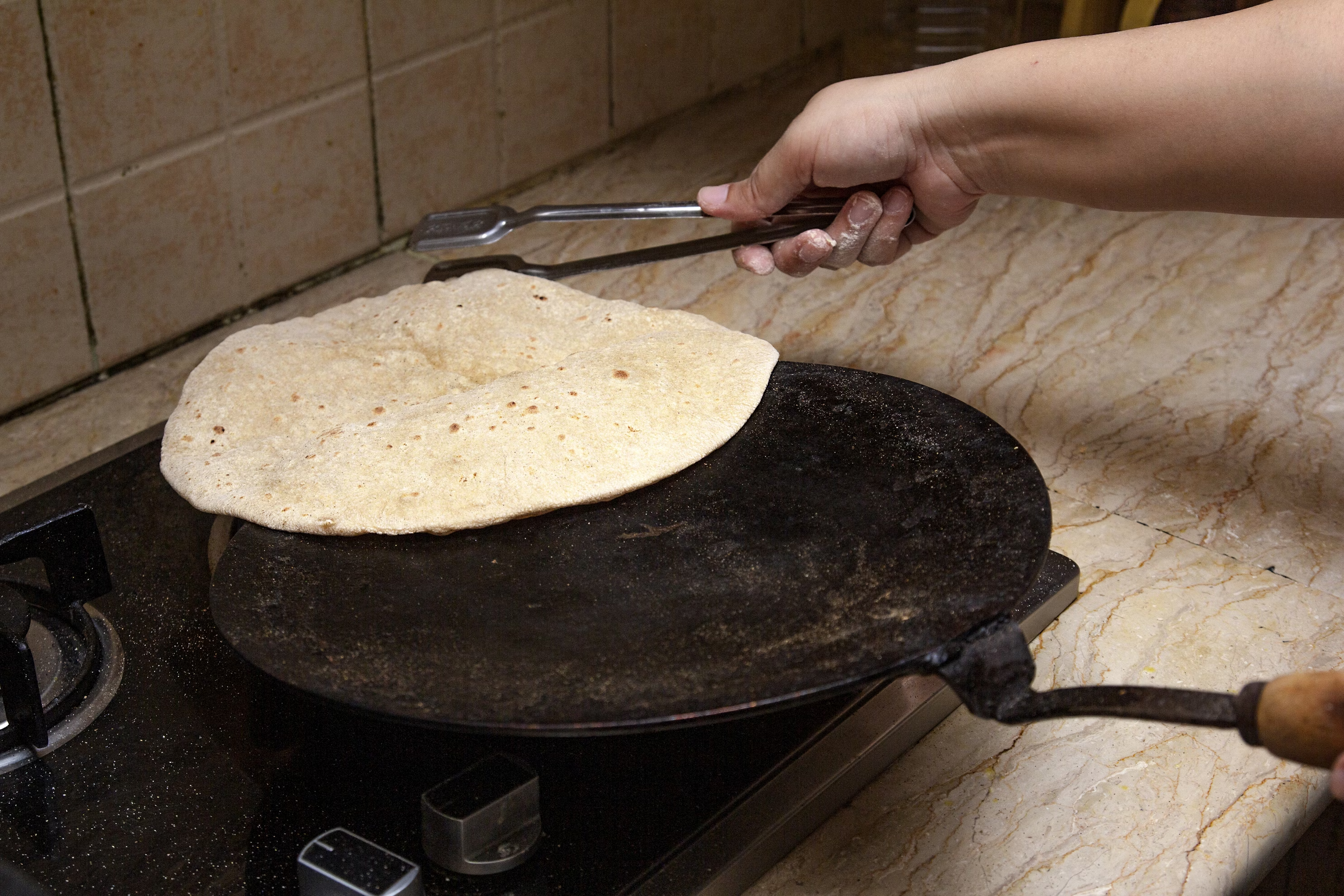Roti Calories: Essential Nutritional Facts
Roti, a staple in many South Asian cuisines, is a type of unleavened flatbread that is simple yet versatile in its nutritional content. The calorie count in one roti can be of particular interest to those monitoring their dietary intake or managing their weight. Typically made from whole wheat flour and water, the nutritional profile of a roti includes not just calories but also carbohydrates, protein, and fiber.

Roti, a staple in many South Asian cuisines, is a type of unleavened flatbread that is simple yet versatile in its nutritional content. The calorie count in one roti can be of particular interest to those monitoring their dietary intake or managing their weight. Typically made from whole wheat flour and water, the nutritional profile of a roti includes not just calories but also carbohydrates, protein, and fiber.
Given its widespread consumption, understanding the nutritional aspects of roti is beneficial. The calories in a medium-sized roti are about 120, with variances that depend on the exact size and thickness of the bread. In addition to its energy content, roti contributes to daily nutritional needs with a modest amount of protein and fiber, making it a wholesome choice for a balanced diet.
Nutritional Profile of Roti
Roti, a staple in many cuisines, is a type of unleavened bread typically made from whole wheat flour. Its nutritional value can vary depending on the ingredients and preparation methods.
Calorie Content and Nutritional Facts
A medium-sized roti generally contains about 106 calories, primarily sourced from carbohydrates. A plain roti of approximately 60 grams has significant nutritional components, as outlined below:
- Calories: 106 kcal
- Carbohydrates: 22g
- Protein: 3g
- Fats: Minimal; changes if prepared with added fats like ghee or butter
- Fiber: 3g
- Minerals: Includes trace amounts of iron, calcium, and potassium
- Sodium: Negligible unless salt is added during preparation
Macronutrients and Vitamins
Roti is not only a source of energy but also provides essential macronutrients and micronutrients. Here's a breakdown:
- Carbohydrates: Serve as the main energy source
- Protein: Essential for body repair and muscle growth; a single roti typically offers about 3 grams
- Fats: Content is low unless additional fats are used in preparation
- Fiber: Aids in digestion; roughly 3 grams per roti
- Vitamins: While not a rich source, roti contains small amounts of B-group vitamins
- Minerals: Provides iron which is crucial for blood production, calcium for bones, and potassium for muscle and nerve function
Considerations for a Balanced Diet
When incorporating roti into a meal plan, it's essential to understand its impact on calorie intake and the role it plays in a balanced diet. One must consider factors such as portion sizes and the type of flour used, which can affect weight management and dietary choices.
Roti in Weight Management
Roti can be a beneficial component of a weight loss program if consumed in moderation. Since calories are a key factor in weight management, one must pay close attention to the serving size. A standard roti made from whole wheat flour typically contains around 175 calories for a 60g serving, but this number may vary. The addition of spreads like ghee or butter increases the energy density, which could impact one's calorie limit for the day. Dietary fiber in whole wheat flour is advantageous for satiety, which may assist in portion control and prevent overeating.
Roti Varieties and Dietary Choices
Roti comes in various forms, catering to different dietary needs. For instance, gluten-free options are available for individuals with celiac disease or gluten intolerance. The nutritional composition differs between varieties such as Tandoori roti and Missi roti, influencing the glycemic index, which is a consideration for those managing diabetes. A 30-gram roti has approximately 104 calories, showing that smaller portions can fit well within a balanced diet without contributing excess calories. Choosing rotis made from nutrient-dense flours can enhance the diet by providing more vitamins and minerals, which is a judicious choice for overall health.
Want more posts like this?Sign up for our FREE newsletter →